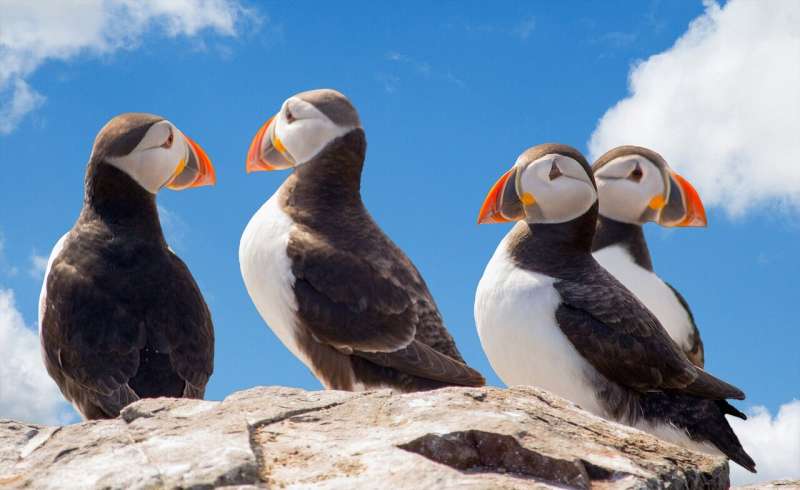This article has been reviewed according to Science X's editorial process and policies. Editors have highlighted the following attributes while ensuring the content's credibility:
fact-checked
trusted source
proofread
Bird study shows Europe's nature in 'dire straits'

Nearly four in 10 of Europe's bird species are now of conservation concern—including 14% of global concern—according to researchers, who say the continent's nature is in dire straits.
The finding, is revealed in the peer-reviewed journal Bird Conservation International, published, by Cambridge University Press, on behalf of BirdLife International.
It comes after the European Parliament voted in favor of the hotly-contested Nature Restoration Law and the EU Green Deal to legally oblige the 27 EU countries to restore nature on land and at sea. Birdlife International described "unprecedented disinformation campaign" aiming to prevent the law, "led by conservative and right-wing politicians and agriculture and fisheries lobbies." The legislation narrowly passed in the European Parliament but the draft law will not impose new protected areas in the EU.
Against this backdrop, the article, "Birds in Europe 4: the fourth assessment of Species of European Conservation Concern," underlines an urgent need to adopt comprehensive restoration legislation, and provides clear priorities to help guide national restoration plans to stop the decline in threatened bird species, which include farmland and steppe birds, ducks, waders, raptors, seabirds and long-distance migrants
BirdLife International has produced three previous assessments of the population status of all naturally occurring wild bird species in Europe: in 1994, 2004 and 2017. Of the 546 species assessed in the latest 2023 study, 207 (38%) qualify as Species of European Conservation Concern (SPECs).
The number and proportion of species of global concern has trebled, from 24 (5%) in 1994 to 74 (14%) in 2023. The researchers say this shows that threats have increased and intensified, with iconic birds such as the Atlantic Puffin Fratercula arctica and the European Turtle-dove Streptopelia turtur having become species of global conservation concern in recent years.
The overall proportion of SPECs has remained similar across all four assessments, from 38 to 43%. SPECs are distributed throughout Europe, and every country shares some responsibility for conserving them. Several regions hold particularly high numbers of SPECs, including parts of Iberia, Türkiye, the Caucasus and European Russia, as well as various coastal areas—indicating 'hotspots' for bird conservation.
The authors said, "It is clear that Europe's nature is in dire straits, many habitat specialists are among the species with a deteriorating status, showing the importance of habitat restoration. Europe still holds between 3.4 and 5.4 billion breeding birds, but more action to halt and reverse losses is needed. This action must now be implemented at scale and pace, to halt and reverse the loss of Europe's birds and meet regional and global restoration targets."
"Species that have seen their status improve include various large waterbirds and raptors, which are recovering due to conservation action. This is a vindication of the positive impact of the implementation of EU nature legislation."
More information: Ian J. Burfield et al, Birds in Europe 4: the fourth assessment of Species of European Conservation Concern, Bird Conservation International (2023). DOI: 10.1017/S0959270923000187
Provided by Cambridge University Press


















